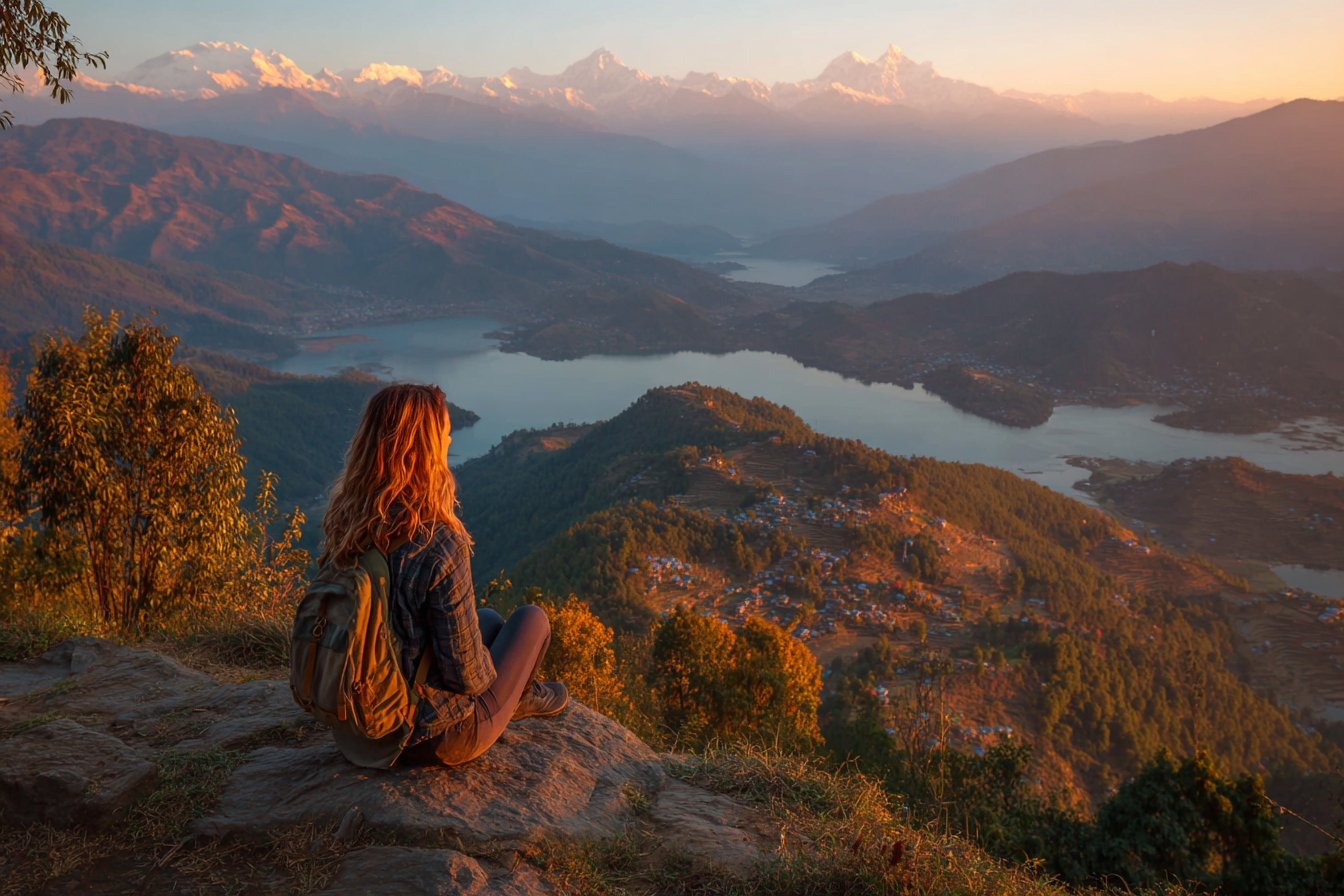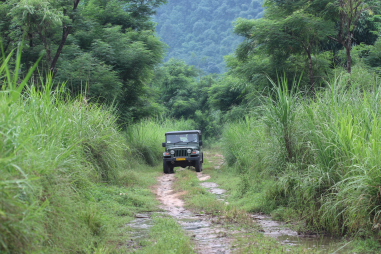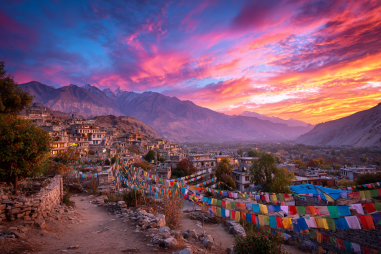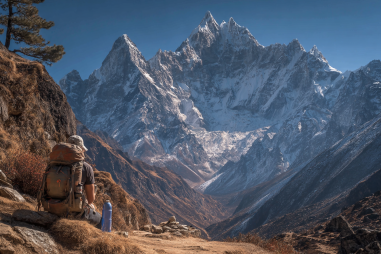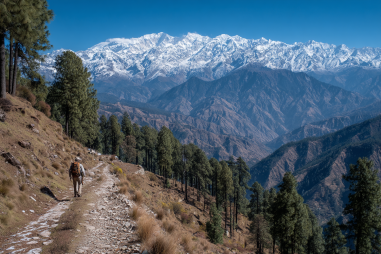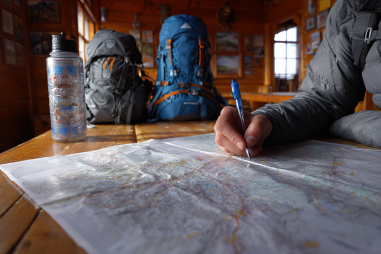Exploring the stunning landscapes, vibrant cultures, and serene spirituality of Nepal on your own can be one of the most empowering and enriching experiences you’ll ever have. Traveling solo allows you to set your own pace, meet new people along the way, and immerse yourself deeply in the country’s unique charm. Whether you’re trekking in the Himalayas, visiting ancient temples, or wandering through bustling markets in Kathmandu, having a solid plan and some handy tips can make your solo journey safer, more enjoyable, and unforgettable. This guide offers essential advice on everything from planning your itinerary to respecting local customs—everything you need to maximize your Nepal solo travel adventure.
Planning Your Solo Itinerary
When traveling alone in Nepal, crafting a well-thought-out itinerary is key to making the most of your time while staying safe. Start by deciding what kind of experience you want—adventure trekking, cultural exploration, spiritual retreats, or a mix of everything. Popular destinations to consider include Kathmandu, Pokhara, Chitwan National Park, and the Annapurna or Everest trekking regions.
Since solo trips require a bit more organization, plan your route with flexibility in mind. Account for rest days and possible delays, especially if trekking at high altitudes. Booking major activities or guided treks in advance can offer peace of mind, while leaving room for spontaneous discoveries. Use online forums and travel blogs dedicated to Nepal solo travel to get updated advice and connect with others on the same path. Also, always keep a copy of your itinerary handy for emergency contacts or at hotels.
Safety Tips for Solo Travelers
Nepal is generally considered a safe destination for solo travelers, but it’s important to stay cautious and prepared. Here are some essential safety tips:
- Stay aware of your surroundings: Especially in crowded places like markets and public transport, keep an eye on your belongings to avoid pickpocketing.
- Use reputable transport and guides: Always opt for recommended taxi services or book guided tours through established agencies.
- Keep emergency numbers handy: The Nepal Police number is 100, and there are tourist police units in major cities who can assist English-speaking travelers.
- Trust your instincts: If a situation feels uncomfortable, remove yourself politely and quickly.
- Inform someone of your plans: Check in regularly with friends or family back home with updates on your location and activities.
Meeting Other Travelers and Locals
One of the most rewarding parts of solo travel is the opportunity to meet people from all walks of life. In Nepal, there are plenty of ways to connect with fellow travelers and welcoming locals alike.
- Stay in hostels or guesthouses: Many solo travelers choose communal accommodations where it’s easier to strike up conversations and share adventures.
- Join group tours or treks: Even if you prefer traveling alone most of the time, joining a group for specific treks or activities can be a great way to make friends.
- Attend cultural events or festivals: Participating in local celebrations like Dashain or Tihar can open doors to meaningful interactions with Nepali people.
- Visit cafes and community hubs: Places popular with expats and travelers, such as in Thamel or Lakeside Pokhara, are perfect settings for casual chats.
Accommodation Recommendations
Choosing the right place to stay is critical when traveling alone. Nepal offers a wide range of options suited for solo travelers on various budgets.
In Kathmandu and Pokhara, you’ll find everything from luxury hotels to budget-friendly hostels. Guesthouses with family-run vibes provide a more personal touch and often come with helpful hosts eager to share local tips. When trekking, tea houses along popular routes offer basic but comfortable accommodations, fostering a social environment among trekkers.
For solo female travelers, picking accommodations with strong reviews on safety and cleanliness is advisable. Many hostels and guesthouses have female dormitories or private rooms with secure lockers. Booking your stay ahead of arrival can alleviate stress, especially in peak travel seasons.
Navigating Transportation Alone
Getting around Nepal independently can be an adventure in itself. The country offers various transportation methods, from local buses and taxis to flights and long-distance coaches.
For urban travel within Kathmandu or Pokhara, cycle rickshaws, taxis, and ride-sharing apps are available and convenient. Always agree on fares before starting the ride to avoid confusion. Public buses are a very economical way to travel between cities, though routes may be crowded and schedules unpredictable.
If you plan to trek, many travelers hire private transfers or jeeps to reach trailheads. Domestic flights can save considerable time, but always book with reputable airlines and allow buffer time for delays. Carry a map or GPS-enabled device, and have printed copies of important addresses since network coverage may be spotty in rural areas.
Cultural Respect and Immersion
One of Nepal’s greatest delights is its rich cultural tapestry, and embracing local customs will enrich your visit profoundly. Here are some pointers to help you be a respectful solo traveler:
- Dress modestly: Both men and women should cover shoulders and knees, especially when visiting religious sites.
- Remove shoes: Take off your shoes before entering temples or homes to respect traditions.
- Use your right hand: When handing over money, gifts, or food, use your right hand or both hands as a sign of respect.
- Ask for permission: Before taking photographs of people or rituals, always seek consent.
- Learn basic Nepali phrases: Simple greetings like “Namaste” can go a long way in building goodwill.
Engaging with local culture can extend beyond sightseeing—consider volunteering, attending cooking classes, or participating in traditional music and dance sessions to deepen your connection and understanding.
Managing Health and Emergencies
Your health is paramount on any solo trip, especially in destinations with differing sanitary standards and challenging terrain like Nepal. Prepare by getting recommended vaccinations well before your departure and packing a basic first aid kit with essentials such as pain relievers, antiseptics, and any personal medications.
Altitude sickness is common on higher treks, so ascending gradually and staying hydrated are crucial. Listen to your body and don’t push beyond your limits. If symptoms worsen, descend immediately and seek medical help.
Travel insurance that covers medical evacuation, accidents, and theft is highly recommended. Familiarize yourself with the locations of hospitals or clinics near your itinerary stops. In case of emergency, the Nepalese tourist police and embassy services can assist foreigners.
Enjoying Nepal Solo
Traveling solo in Nepal opens doors to deep self-discovery, thrilling adventures, and encounters with one of South Asia’s most spiritual places. While it requires careful preparation and mindful respect for local traditions, the rewards are immense—transformative moments in breathtaking natural settings and friendships that cross cultural borders.
Embrace the unknown, savor the solitude of mountain trails, and stay open to the warmth of Nepal’s people. By taking these steps to plan wisely and travel safely, your solo journey will not only be safe and smooth but also truly life-changing. Nepal awaits your footsteps—ready to reveal its magic, one adventure at a time.

